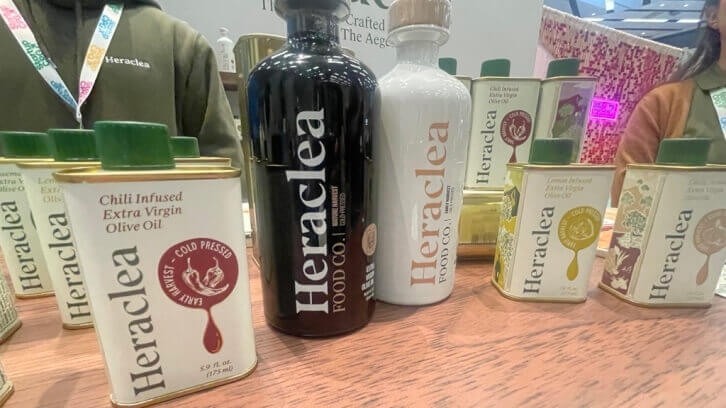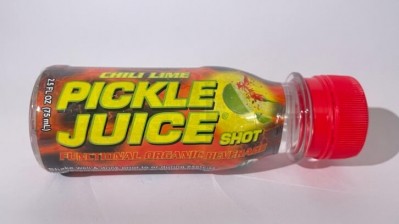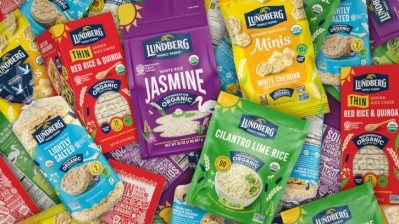Natural Products Expo West
Heraclea’s Turkish olive oil pursues the gold standard in the category

Through its vertically integrated, family-owned business, Heraclea grows its memecik olive variety from 15,000 olive trees across 200 acres in the Milas region in southwest Turkey, an area that received a Protected Designation of Origin (PDO) status by the EU, Bahceci explained, adding that the company is involved in each step of the supply chain, ensuring the quality of the finished memecik olive oil.
“We only work with memecik and nothing else. We do everything from growing the olives, we harvest them, we work with a local mill to press them, but we’re always present. We bottle the oil ourselves and then we ship it to the US. We have a warehouse in the US where we ship to distributors, direct to consumers or any retailers that ask for our products,” he elaborated.
The quality of Heraclea's oil is determined by level of stress the trees are under, Bahceci explained. As trees undergo external stress, they produce antioxidants to survive which imparts its unique flavor and quality. Heraclea controls the agricultural process by forgoing agrochemicals, fertilizers, pesticides and artificial irrigation, so that the “trees are always under a bit of stress,” Bahceci said.
Heraclea bottles its oils during different harvest stages to capture different flavor profiles and antioxidant levels. Bahceci explained that antioxidant levels decrease as the memecik olive tree matures, which creates a specific flavor and nutritional profile that distinguishes itself from the more common Italian and Spanish olive oils in the category.
“We have products for every taste and we distinguish them by the way we harvest them. So if you harvest the olive early, it’s going to be pretty peppery. If you wait until November, December, it’s going to be more mellow. And if you wait until January, it’s going to be much more mellow balanced,” Bahceci elaborated.
The Early Harvest oil, which is rich in polyphenols (450mg) according to lab tests, exhibits “notes of freshly cut grass, tomato stems, all the floral aromas. When you sip it—and this is something that distinguishes us from other oils—the antioxidants give you a pungent hit on your throat,” he said.
While the Mature Harvest oil is “more fruity and pungent,” he added.
Heraclea also offers infused olive oils, including chili, garlic, rosemary and lemon, in addition to its Everything Oil that can be used for any occasion.
Regenerative farming ‘is the way we should be farming anyway’
As companies across the food and beverage industry expand efforts to implement regenerative agriculture into its supply chain, Bahceci explained that as a farmer himself, regenerative farming is a norm for the business.
“I strongly believe that we do not even have to say ‘regenerative agriculture’ – it is the way we should be farming anyway,” he emphasized.
Rather than using fertilizer in the soil, Heraclea relies on “over 100 bird hives on our land,” creating a symbiotic relationship between the farm and the birds, where the birds feed on the olives to then provide nutrients for the soil from their waste.
“Nowadays, it is called regenerative agriculture, [but] it’s the simplest form of agriculture before we had fertilizers. This is what farmers used to do, and that’s what we do,” he added.
Pursuing Fair Trade status to support Turkish workers
The company plans to achieve Fair Trade status by June this year with 40 cents of every one liter of oil sold returned to full-time and seasonal employees in Turkey, which would be an estimated total of $300,000 a year. If approved, Heraclea will be the only Fair Trade-certified olive oil company in the US, Bahceci said.
He added, “If we’re able to do so, Heraclea will be one of the first to implement [Fair Trade] and it’s our mission to change the olive oil industry, so it’s not just a marketing term, it will be our first step in setting the gold standard.”
Currently, the company’s certifications include Protected Designation of Origin (PDO), Non-GMO Project Verified and 1% for the Planet, which does impact its margins but “there is no need to be greedy, we are not the only ones selling olive oil,” he said.
He added, “The reason we’re able to sell olive oil is because we’re trying to do something great, so if that means we’re making five percent less, as long as we’re above water, we’re okay with it.”
100% funded by the Bahceci family
The family-owned Heraclea continues to be “100% funded by the Bahceci family,” despite interest from venture capitalists.
Bahceci reiterated that the company actively chooses not to take outside capital, emphasizing that the company will continue to show “that Turkish olive oil is very high quality and will get shares in the US market. And I think it should be a Turkish company behind this brand to show everyone that we are able to do this.”
As the company celebrated its first year in business during the show, Heraclea will continue with its nimble marketing approach by focusing its efforts on in-person demos with its retail partners.
“There is no bureaucracy in Heraclea. If we see something is working, we do more of that. If we see something is not working, we pull back. As we grow our physical presence … we will be doing more demos in-store … to support our retail partners, [it] is something we value because we think the business does not end when we sell the product. We have to make sure our retail partners are able to sell the product to the end consumer,” he added.























